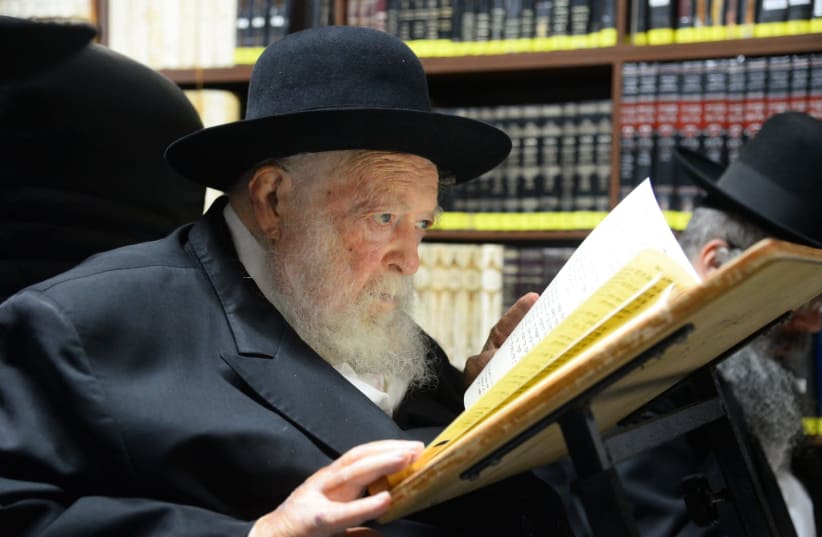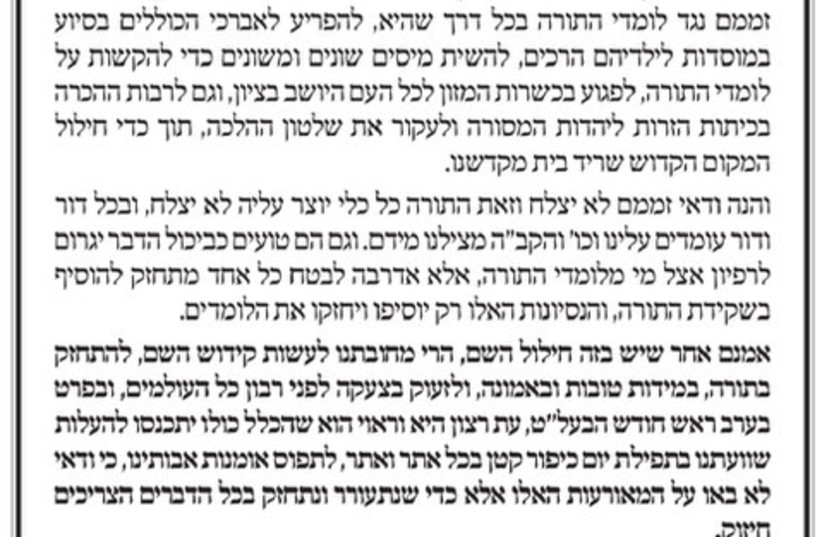The two most senior rabbis of the haredi (ultra-Orthodox) non-hassidic community jointly denounced the government in a public notice published in the Yated Ne’eman newspaper Tuesday morning, lambasting reforms to religious life the government is seeking to enact.
Rabbi Chaim Kanievsky, 93, and Rabbi Gershon Edelstein, 98, highlighted several grievances of the haredi community with the current government, which has affected, or is poised to affect, the community’s life and the control of its political parties over religious life in the country more broadly.
The “iniquitous government” seeks to “harm all the pillars of the world and has directed their schemes against those who study Torah, interfere with married yeshiva students and the assistance [they receive] for their young children, impose different taxes to make the lives of Torah students difficult, harm kashrut [kosher supervision] for all the people dwelling in Zion, increase recognition of groups foreign to traditional Judaism, uproot the rule of Halacha and [promote] the desecration of the holy place of the remnant of the Temple,” they wrote.
They were referring to several government policies and proposals, including cuts already enacted to subsidized child daycare for families of full-time yeshiva students; legislation to abolish the Chief Rabbinate’s monopoly over kashrut supervision; new taxes on disposable plastic tableware, which the haredi community makes extensive use of; and the likelihood that the government will adopt either fully or partially the Western Wall agreement that creates a state-recognized prayer space at the southern end of the site for non-Orthodox prayer.
Kanievsky and Edelstein said these plans would not bear fruit and instructed the haredi community en masse to “cry out before God,” especially this Thursday, the eve of Rosh Hodesh, which also coincides with the final vote on the state budget in the Knesset, where some of the government’s religious reforms are being enacted.
Earlier this week, Rabbi Shmuel Kamenetsky, dean of the Talmudical Yeshiva of Philadelphia and a member of the Council of Torah Sages of America, issued a statement, saying Edelstein had requested from him that the council protest the Israeli government’s policies and legislation on religious life and its “persecution of religion.”
Kamenetsky cited government plans, which have not yet been submitted in legislation, to decentralize authority over Jewish conversion from the Chief Rabbinate to municipal chief rabbis.
The Council of Torah Sages of America issued a statement, saying the Israeli government “wishes to impede Torah learning and fulfillment of the mitzvos [commandments],” and it requested “mass prayer against these plans for this Thursday.”

